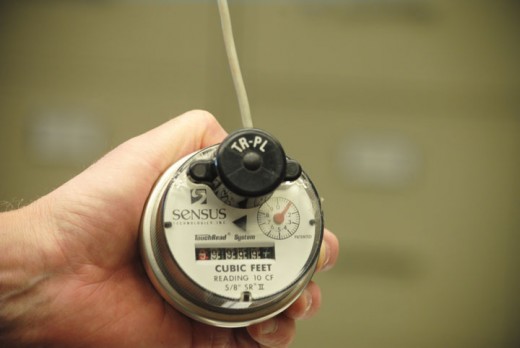Idyllwild Water on brink of Stage 3
Stage 3 water emergency is imminent depending upon how much rain and snow arrived last weekend, according to Idyllwild Water General Manager Tom Lynch.
“We are in Stage 2. However, we meet the criteria level for Stage 3,” Lynch told IWD directors last week. “We are evaluating day-to-day.”
Two important criteria for declaring Stage 3 have been met. The groundwater levels for the Foster Lake wells recently fell to 50 feet and the downtown wells are below the 20-foot depth criterion.
“We’ll try to hold off declaration of Stage 3 until we see what the next storm does,” Lynch told the board at its Feb. 25 meeting. On Monday, March 2, he said the staff was to evaluate well levels this week to determine how beneficial this storm may have been.
While fresh precipitation will not be immediately salutary because of the time it will take to percolate from the surface to the wells, it will be a sign that well levels will improve. Even the multiple inches of rain Sunday and Monday a week ago had minimal effect on Foster Lake’s level.
“The rain has done little to impact the condition at the lake,” Lynch said then. “There’s a large puddle which continually evaporates in the warmer weather.”
Director Mike Freitas encouraged Lynch to move on a declaration soon since immediate rainfall will still take months before any positive effect is apparent.
However, Lynch agreed that a decision would likely be soon and expects the issue to be on the agenda for the March meeting.
In last week’s Field Poll, nearly 95 percent of registered voters believe the water shortage is serious or extremely serious. From a year ago, the percentage of respondents who feel the water shortage is not serious has fallen from 10 to 5 percent.
Most voters prefer voluntary reductions rather than mandatory water rationing, according to the Field Poll. Southern California (excluding Los Angeles County) was the area most strongly in support of voluntary compliance.
The drought and lower wells levels also are costing IWD money. Not only are revenues falling as customers strive to conserve water, but expenses increase because it requires more electricity to pump the deeper wells. Through January, IWD’s net water income is about $150,000.
In addition to nature’s help from precipitation, Lynch told the board that two recent projects — refurbishing the Oakwood well and re-opening the horizontal and vertical wells above Foster Lake — are awaiting state approval to be incorporated into IWD’s distribution system.
“I’m hoping with these we’ll restore the water table near the lake,” he added.
In January, IWD customers used 6.3 million gallons of water, which was 68,700 gallons less than in January 2014.
In non-water business, the board approved two contracts. One will replace the current 45-kilowatt failed inverter, which failed this fall with a series of three smaller inverters. This equipment converts the DC power generated from the solar panels to AC or alternating current at the district’s solar facility. The project’s cost is expected to be about $25,000, and, with the greater efficiency and power produced, it should have a payback of three years, according to Lynch.
The second contract would evaluate IWD’s waste-treatment system, particularly its ability to provide service to the proposed brew pub in town. This contract will cost about $10,000 and the owners of the proposed pub will share the costs.
“The results of the study don’t constitute any obligation on the district,” affirmed IWD Board President Jim Billman. “This research is at their request and whether we can handle any discharge.”
Lynch agreed that the need for the study arose from the owners’ inquiry about access to the district’s sewer system.
“It’s what we’re capable of taking and evaluating adjustments as a result of bringing the brewery into the system,” Lynch stated.
He stressed that the pub has alternatives for handling its waste besides through the district’s wastewater. “They can handle their waste through pre-treatment or nothing into our system and trucking it off the Hill,” he added.




Good thing a private well was sunk for the new micro-brewery that is being built. At least that way when Idyllwild runs out of water it can drink beer instead. Oh wait, it takes water to manufacture beer, doesn’t it?